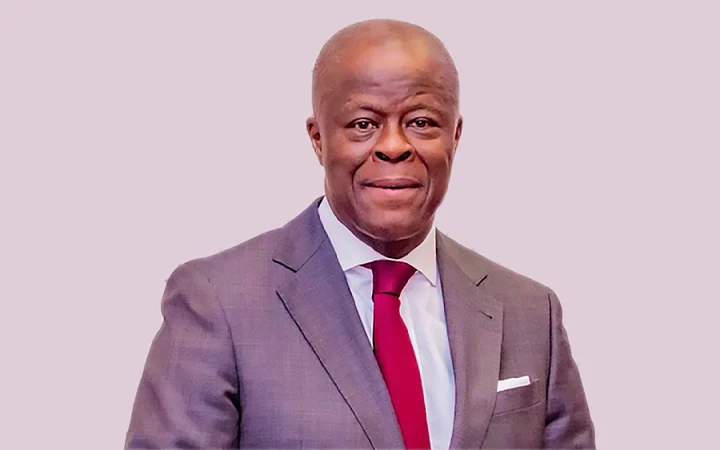Nigeria’s Minister of Finance and Coordinating Minister of the Economy, Wale Edun, has dispelled fears that the Federal Government plans to introduce a 5 percent fuel surcharge in 2026, insisting that no such policy is under consideration. The clarification comes amid public anxiety following reports that a new petroleum product levy could be implemented as part of the government’s revenue drive.
Speaking at a briefing in Abuja, the minister reaffirmed that the government’s focus remains on stabilising the economy, easing the burden on households, and creating conditions for growth. He explained that while revenue mobilisation remains a priority, policies that could worsen the cost-of-living crisis will not be pursued.

“There is no plan, now or in the coming year, to introduce a 5 percent surcharge on petroleum products,” Edun said. “Government is committed to protecting citizens from additional hardship, particularly at a time when energy costs already weigh heavily on households and businesses.”
The minister’s comments follow growing speculation that a petroleum surcharge was being considered under wider fiscal reforms aimed at reducing Nigeria’s budget deficit and increasing non-oil revenues. The reports drew sharp reactions from labour unions, trade associations, and civil society groups, with many warning that such a tax would fuel inflation and trigger nationwide unrest.
The Trade Union Congress (TUC) and Nigeria Labour Congress (NLC) had earlier threatened industrial action if government proceeded with any levy on fuel, arguing that Nigerians were already battling the effects of subsidy removal, high food prices, and currency depreciation. The unions had described the proposal as “anti-people” and urged government to explore alternative measures for revenue expansion.
By clarifying the position, the Finance Minister has sought to calm tensions and reassure both labour and the wider public. He noted that the government’s strategy is to strengthen productivity and broaden the tax net through efficiency and compliance, rather than by imposing new levies on basic commodities.
Edun highlighted several initiatives underway to expand non-oil revenues, including the rollout of the National Single Window for trade facilitation, reforms at the Federal Inland Revenue Service (FIRS), and stronger enforcement of tax compliance in sectors such as telecommunications and e-commerce. He stressed that boosting productivity and widening the tax base were safer and more sustainable ways of increasing government income without adding pressure on vulnerable households.
Economic analysts welcomed the clarification, noting that uncertainty around the supposed surcharge had unsettled markets and fuelled public speculation. According to them, stability in government communication is crucial for restoring investor confidence, particularly at a time when Nigeria is seeking to attract foreign capital.
“The government’s denial of the fuel surcharge plan is positive for market sentiment,” said an economist at a Lagos-based consultancy. “What investors want to see is consistency. Clear communication reduces speculation and helps businesses make better decisions.”
For many households, the minister’s statement comes as a relief. Rising transport fares, food costs, and utility bills have strained disposable incomes since the fuel subsidy was scrapped in 2023. Any additional levy on fuel would have directly affected both individuals and small businesses that depend heavily on petrol and diesel to operate.
Still, some experts caution that while the government has shelved any plan for a surcharge, the fiscal pressure on the federal budget remains significant. Nigeria faces rising debt obligations, volatile oil revenues, and demands for infrastructure investment. Balancing these competing needs without burdening citizens will remain a challenge.
The government has also reiterated its commitment to cushioning the effects of economic reforms through targeted palliatives, investment in mass transit systems, and incentives for renewable energy. Programmes supporting agriculture and small businesses are also being expanded to reduce inflationary pressures and promote inclusive growth.
Meanwhile, labour unions say they will hold the government accountable for its assurance. The TUC welcomed Edun’s clarification but maintained that it would continue to monitor developments closely. “We take the minister at his word, but our vigilance remains. Nigerians cannot afford another increase in fuel-related costs,” a TUC spokesperson said.
Civil society organisations also urged government to maintain open dialogue with citizens. Transparency, they argued, is key to building trust in economic reforms. “Policies must be clear from the start. Mixed signals create tension,” a representative of a policy think-tank noted.
For now, the Finance Minister’s statement has reassured the public that fuel prices will not face an additional tax burden in the coming year. But the broader question of how Nigeria will sustainably increase revenues without deepening hardship remains at the heart of the government’s economic strategy.
As the country navigates its reform path, stakeholders will be watching closely for further signals from the Finance Ministry and the Presidency. The assurance that no 5 percent surcharge is in the pipeline is a welcome relief, but Nigerians will expect the government to match its words with consistent actions aimed at easing hardship and building a stronger economy.
Support InfoStride News' Credible Journalism: Only credible journalism can guarantee a fair, accountable and transparent society, including democracy and government. It involves a lot of efforts and money. We need your support. Click here to Donate
